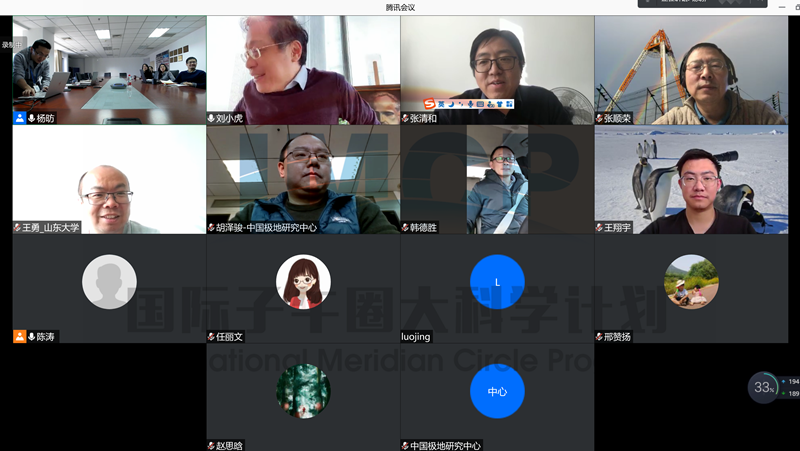The Kick-off Meeting of IMCP Polar Regions/SMILE Ground-based Detection Working Group Held in Beijing
On December 24, 2020, the kick-off meeting of International Meridian Circle Program Polar Regions/SMILE (Solar wind Magnetosphere Ionosphere Link Explorer) Ground-based Detection Working Group was held at National Space Science Center (NSSC). The meeting is attended by more than 20 experts from MIT, Shandong University, China Polar Research Center, Tongji University and the National Space Science Center of Chinese Academy of Sciences.
Considering the complementary nature of the International Meridian Circle Program (IMCP) and SMILE mission in terms of integrated space-ground detection, the Chief Scientist of IMCP and the Co-Principle Investigator of SMILE from the Chinese side decided to establish the IMCP Polar Region/SMILE Ground-based Detection Working Group. Academician WANG Chi, Prof. LIU Weining and Professor ZHANG Shunrong from MIT will serve as academic advisors for the working group, and Prof. ZHU Yajun will head the working group, while the IMCP Office will handle the general coordination work of the working group.
The experts attending at the meeting had in-depth exchanges and discussions on the joint observation of IMCP and SMILE. The meeting unanimously agreed that IMCP is the first observation program of Earth's multi-spheres global response mechanism through which multi-instruments and multi-elements joint observation of geospace, atmosphere and surface cycles/spheres can be carried out, while SMILE is the first solar wind-magnetosphere ionosphere coupling imager which can quantitatively explain the driving mechanism of the solar activities. The joint observation of the two aforementioned missions can combine the global drive and global response mechanism, forming a complete solar-terrestrial space weather response chain. This will substantially improve the scientific output of both missions.
The working group is responsible for the refinement of the scientific objectives of the planned joint observation and working out the general detection program during the study phase of IMCP and before the launch of the SMILE mission. The working group plans to hold regular international and domestic seminars and workshops in the future, focuses on promoting international cooperation with Russia, Canada and Thailand that involved with IMCP, and endeavors to fill in the gaps of ground-based detection in the polar cap region by planning new observations and improves the ground-based detection in the low-latitude equatorial region in Southeast Asia.
The online/onsite hybrid meeting

